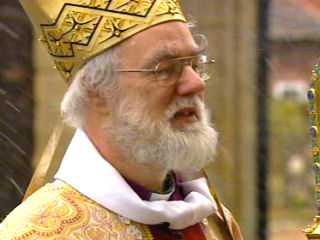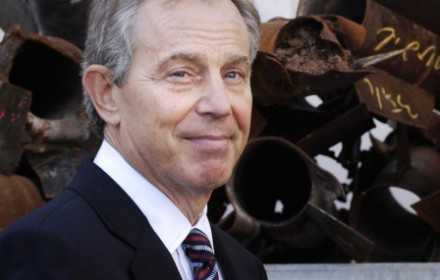By Sedat LACINER
NATO has started to take on new roles, especially after the Cold War period, among which combating international terrorism is its first priority. The expansion of NATO’s operation area from the former Yugoslavia to Afghanistan is also a new development NATO is operating among religiously and ethnically diverse populations from numerous regions. Hence, the Organization’s operation locations ”at an equal distance from all religions and cultures” is of the utmost importance in accomplishing its mission. NATO is currently preparing to welcome its new secretary general, and Denmark’s Prime Minister Anders Fogh Rasmussen is in the lead, among the other strong candidates, in consideration for this post.
The US, Germany, and other significant NATO members have already asserted their support for Rasmussen. Moreover, Denmark has been conducting lobbying campaigns in support of its prime minister. Yet, since Rasmussen has an unfavorable record in combating terrorism and in conducting dialogue between civilizations, he is the worst candidate for the NATO or any organization of this kind:
* Copenhagen Is Broadcasting “Terrorist TV’
First, Rasmussen tolerated the PKK’s (Kurdistan Worker’s Party) activities in Denmark, and gave permission to the terrorist organization launching a television channel in Copenhagen: Roj TV, perceived as a culture channel by the Danish authorities, which enhances the so-called suppressed Kurds’ language and culture. However, to ignore the close relations between Roj TV and the PKK, one should be blind or malicious.
The TV channel repeatedly broadcasts PKK terrorists to the screen. Moreover, most of these terrorists are well known some are leaders of the Organization or even suspects on Interpol’s wanted list.
Moreover, the TV channel calls Kurdish people to perform acts of violence and terrorism against Turkey every day. Despite the fact that inciting violence is banned by the EU and Danish law as well, Denmark did not take any measures to discourage this persistent malice.
Turkey has warned Denmark on the matter numerous times. Not only Turkey, but also the United States (US) has pointed to dubious relations between Roj TV and the PKK and called for the channel to be shut down. Yet the Rasmussen Government did not take these warnings seriously, only postponing the solution by saying, “The police are investigating the issue,” or “our judges are going to focus on the matter.”
The terrorist relations between Roj TV and the PKK were obvious and the Danish government did not need any clues to figure out this connection. MED TV, the first channel established by the PKK, was banned by the British television authority ITC in 1999. The terrorist organization then moved its TV channel to France, under the name “MEDYA TV.” However, the France did not welcome the channel either, and it was closed down by the court after a short period of broadcasting.
The PKK moved to Denmark after the UK and France and found a government willing to help its cause. While Roj TV was broadcasting from Denmark, it was banned in Germany due to its terrorist roots. The PKK’s reaction to Germany’s stance was to kidnap German mountain climbers in Turkey. However, Germany did not yield to the PKK’s blackmailing and insisted on its decision on banning the TV channel. Indeed, the PKK is labeled in Danish law as a “terrorist organization” as it was by the US, the EU, the UK, Germany, and Turkey. Yet, Rasmussen continues to protect the terrorist organization’s activities by tolerating them. Thus, the PKK and its branches have freely carried out their activities in Denmark as if it was a civil society organization.
Now, the prime minister of this government, who has turned a blind eye towards terrorism, and is even seen as a supporter of terrorism, is preparing to be the head of NATO which regards combating terrorism as one of its primary missions. If Rasmussen becomes the Secretary General of NATO, this could possibly affect numerous NATO policies, especially those related to combating terrorism. Moreover, this could lead many countries including but not limited to Turkey, to question their confidence in the Organization’s policies.
* Cartoon Crisis
Rasmussen’s stance during the “Cartoon Crisis” is another fact which makes him a weird figure for the Secretary General of NATO.
Just after the release of the caricatures in Jyllands-Posten newspaper on September 30th, which picture Muslims and their prophet as terrorists, Turkey warned Denmark to be aware of the incoming danger. Ambassadors of ten Muslim countries pioneered by former Ambassador of the Republic of Turkey to Denmark sent a signed petition to the Prime Minister Rasmussen to protest the events. The ambassadors asked for a meeting with Rasmussen to evaluate the crisis and call for the peace atmosphere. Turkey aimed to bring the representatives of the Muslim countries in Copenhagen and the Denmark Government together during that crisis. However, Rasmussen did not appraise Turkey’s good will and his government implied that they did not need Turkey’s mediation on the issue. Rasmussen rejected the meeting request rudely. The caricature crisis spread to all Muslim countries as a result, and more radicals like Iran became dominant in anti-Denmark campaigns gradually, yet decisively. Whilst Denmark’s interests started to be damaged from these campaigns, Rasmussen declared that he personally condemned the caricatures, yet, he continued to evaluate the issue within the context of freedom of speech. His management of crisis was not only unsuccessful but also was narrow sided. Rasmussen ignored dialog and underestimated Turkey and its soft power. Today, for many Muslims, Denmark is a country which insulted their Prophet.
Is not the Rasmussen’s taking post going to disrupt NATO’s operations in Afghanistan while the perception toward Denmark is highly problematic among the Muslim countries?
* Turkey’s EU Membership
Rasmussen’s opposition to Turkey’s EU membership on the ground that Turkey has a different cultural-religious background is the third reason which damages Rasmussen’s image in the eyes of Turkey and Muslim countries. For Rasmussen, who seems as if he does not make religion based politics, Turkey does not have a place in the EU.
Rasmussen had a significant role in Denmark’s opposition to Turkey’s EU membership as contrary to the stance of other countries in the Northern Europe. The Prime Minister also chose to support Turkey’s opponents whenever Turkey had a disagreement with other countries. His behavior towards Turkey was scorning and perception of Turkey for Rasmussen was “an Eastern country waiting at the EU’s door.” Resembling to Europe’s fanatical rightist politicians, Rasmussen became a problematic figure who discourages Turkey on the way to the EU membership.
Since he has been opposing Turkey’s EU membership as the first Muslim country to be in the EU, it is not hard to guess to what extent Rasmussen would damage the relations between the NATO and other Muslim countries.
***
Indeed, it is like a bad joke
While we were happy for getting rid of the Bush administration, Danish version of Bush is preparing to be the head of NATO during the Obama presidency.
slaciner@gmail.com
Sedat LACINER: BA (Ankara), MA (Sheffield), PhD (King’s College, London University)
***
Translated by Dilek Aydemir, USAK
Language Edit by Kaitlin MacKenzie, USAK
Source: Journal of Turkish Weekly, 26 March 2009






